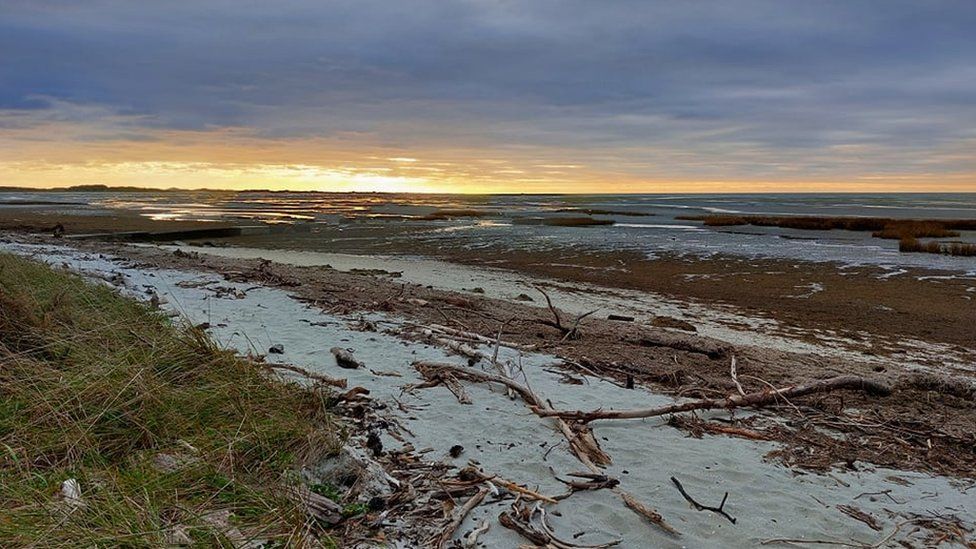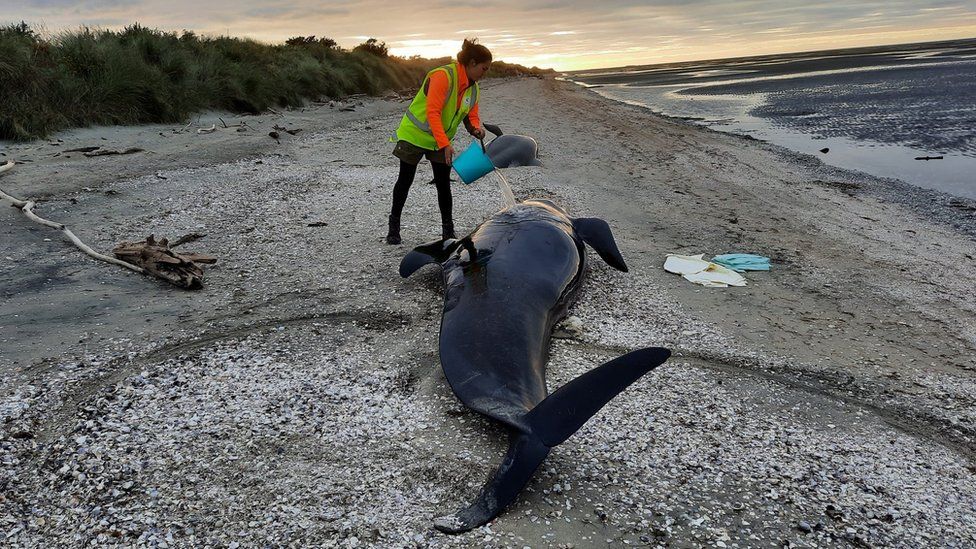Published 18 March 2022
Basseterre
Buckie Got It, St. Kitts and Nevis News Source
At least 31 pilot whales have died after a mass stranding at a New Zealand beach known to be a notorious spot for whale deaths.
Wildlife officials said the pod was first spotted on Thursday, beached across three kilometres of Farewell Spit on the South Island.
On Friday, rescuers managed to refloat five whales who had survived the night.
But just hours later, at least two had washed back up and had to be euthanised, officials told the BBC.
This beaching is just the latest in mass strandings at Farewell Spit, the northernmost tip of New Zealand’s South Island.
Authorities say while whale strandings are unfortunate, they are a natural phenomenon.
“It’s not an uncommon experience here in Golden Bay, given the area’s topography… it’s known as one of the stranding hotspots,” rescuer Dave Winterburn from the Department of Conservation told the BBC.
“So we go through periods when we don’t have any, and then we get a couple in a row – that’s just the way things go.”
It is not fully understood why the whales got stranded, but pilot whales are known to be more prone to getting beached. They are not considered endangered, although exact population numbers are not known.

Farewell Spit, a 26km (16 mile) hook of sand that protrudes into the sea, has been a frequent site of strandings, although scientists are unclear why.
One theory is that the spit creates a shallow seabed in the bay with extensive, kilometres-wide sand flats.
This can confuse whales’ sonar navigation systems.
But Mr Winterbottom said there weren’t any plans to put in protections for whales in the area, as the vast landmass made solutions like a water barrier “completely impractical”.







